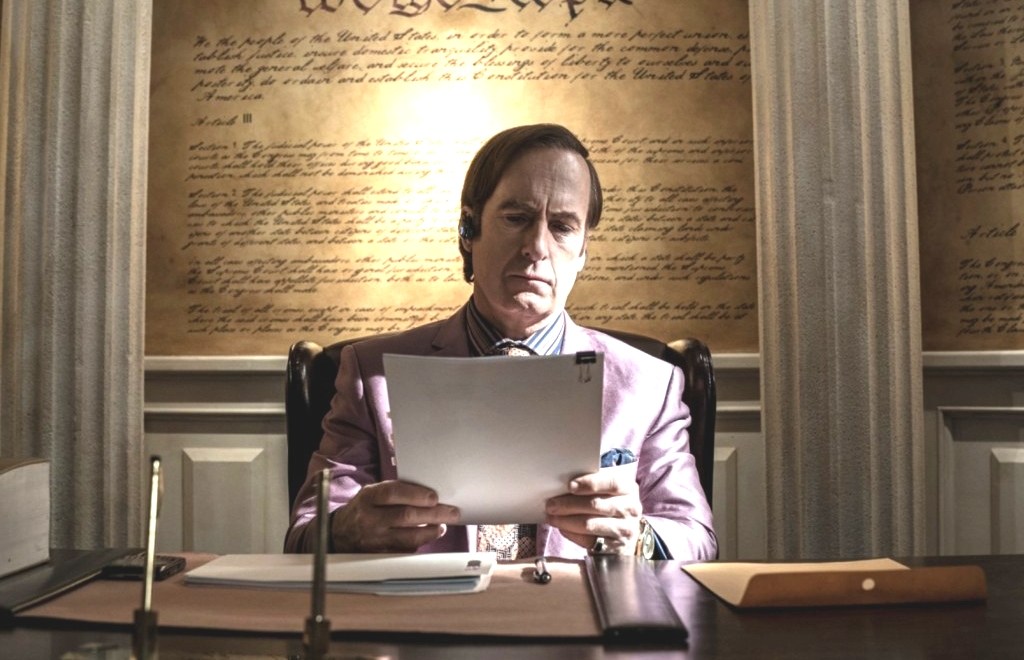After six seasons, Better Call Saul has finally caught up with Breaking Bad. For a majority of the intentionally slow-paced and incredibly brutal series, Saul Goodman was Jimmy McGill, an aspiring lawyer whose tendency to pull a little scheme always got in the way of his attempt to do the right thing. For a good chunk of Better Call Saul, it’s almost impossible to imagine what the corrupt but good-hearted Jimmy McGill would become without Kim Wexler, even though we know exactly what’s coming.
I took on the painful task of going through the entire run of Breaking Bad to find any Jimmy McGill moments in Saul Goodman scenes: any moments that suggest there’s more to the over-confident tacky than meets the eye. There aren’t many moments, considering that Better Call Saul wasn’t in development until later in the show’s run. Despite this, my very important, time-consuming research proves that Jimmy McGill/Saul Goodman’s story was always supposed to be very depressing and that the writers had a very depressing background story in mind as early as the character’s introduction in season two.
Here, in all its (bleak) glory are the Jimmy McGill moments from Breaking Bad:
SEASON TWO
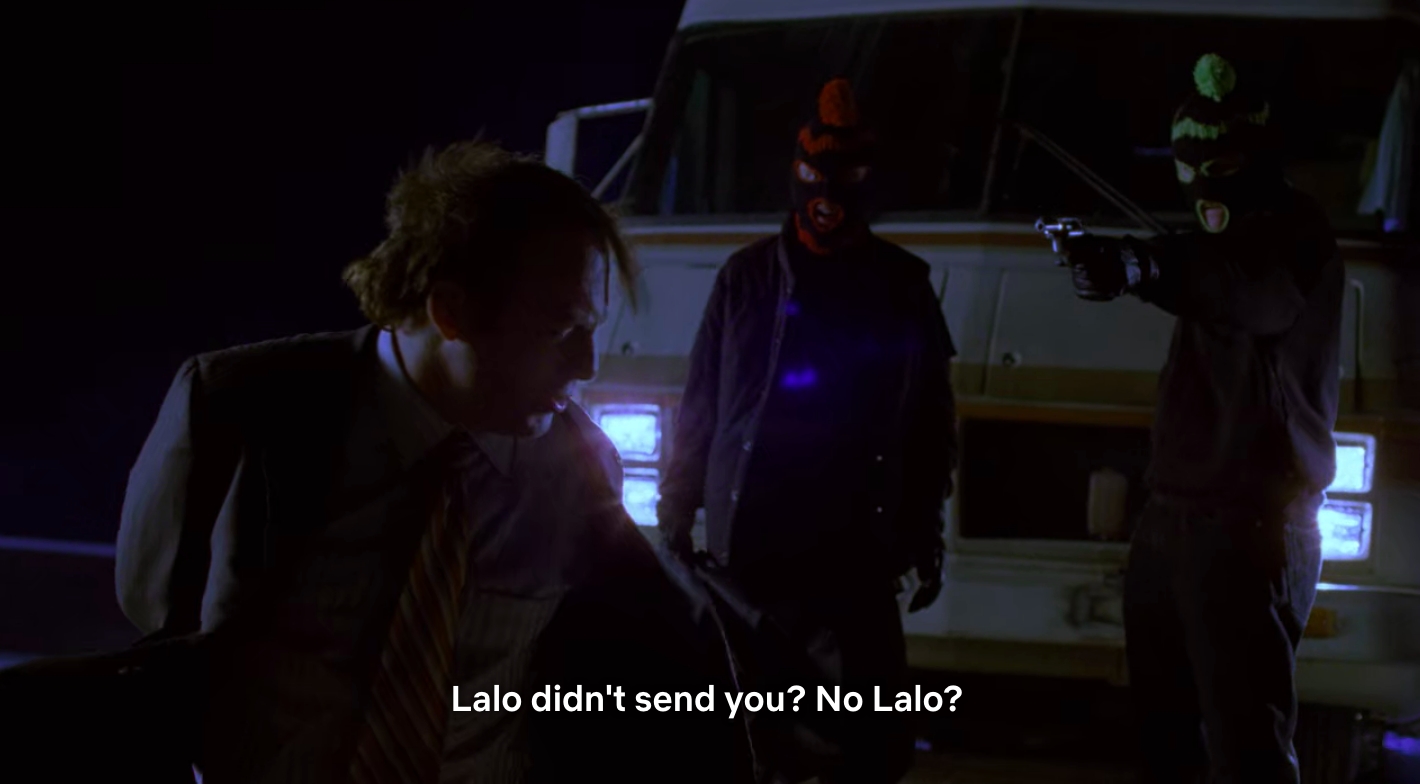
Saul Goodman’s first appearance on Breaking Bad is in the eighth episode of the second season, titled “Better Call Saul.” It marks the beginning of the end for Saul, and for Jimmy McGill. Things really started taking a turn for the worse once Saul got involved in Walter White’s meth empire. Although there isn’t much Jimmy in season two, considering the character was added for some comedic relief and was written before the series skyrocketed in popularity and years before a Saul Goodman spinoff was in the works, we get some indication of his personality and history beyond the scummy lawyer persona.
The first time Walter and Saul meet, Saul rejects a $10,000 bribe. So Walter and Jesse Pinkman kidnap Saul after digging a grave for him. The Better Call Saul writers took this dialogue very seriously, even building the entire series around it. Saul is freaking out. First, he name-drops Ignacio (Nacho Varga, may he rest in peace). Then he asks if Walt and Jesse were sent by Lalo. Odenkirk’s performance, even without the context of what happened between his character and Lalo Salamanca, suggests a crippling fear that lives up to the performance with the context. Throughout the season, Saul references a lot of films including The Godfather and White Heat. On Better Call Saul, Jimmy and Kim Wexler share a love for cinema, particularly Old Hollywood.
SEASON THREE
Episode 2, “Caballo sin Nombre”
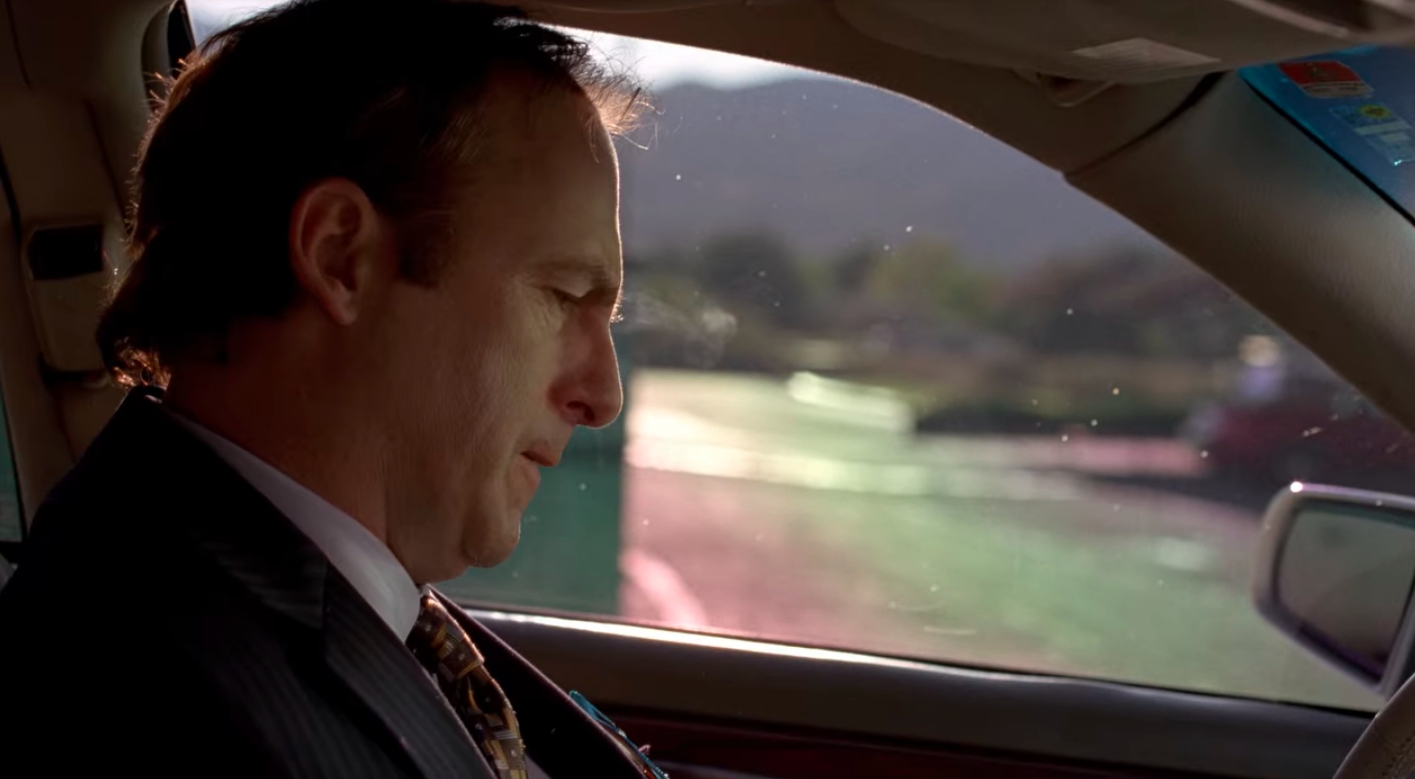
This one is rough, and probably one of the toughest scenes to watch in a show that includes crystal meth use and a man’s face getting blown off at a nursing home. Early in season three, Skylar White discovers her husband’s secret which causes Walter to spiral. Who does he go to for support? His trusty criminal lawyer, of course. As Walter tells Saul he’s lost his family, he gets uneasy, and more removed from his overconfident persona. But he gives Walter some very Saul Goodman-y advice. “We live to fight another day,” he says. “There are other fish in the sea.” After their conversation, we see a distraught Saul walk to his car where the camera stays with him as he sighs deeply. This is the face of a man who misses Kim Wexler.
Episode 4, “Green Light”
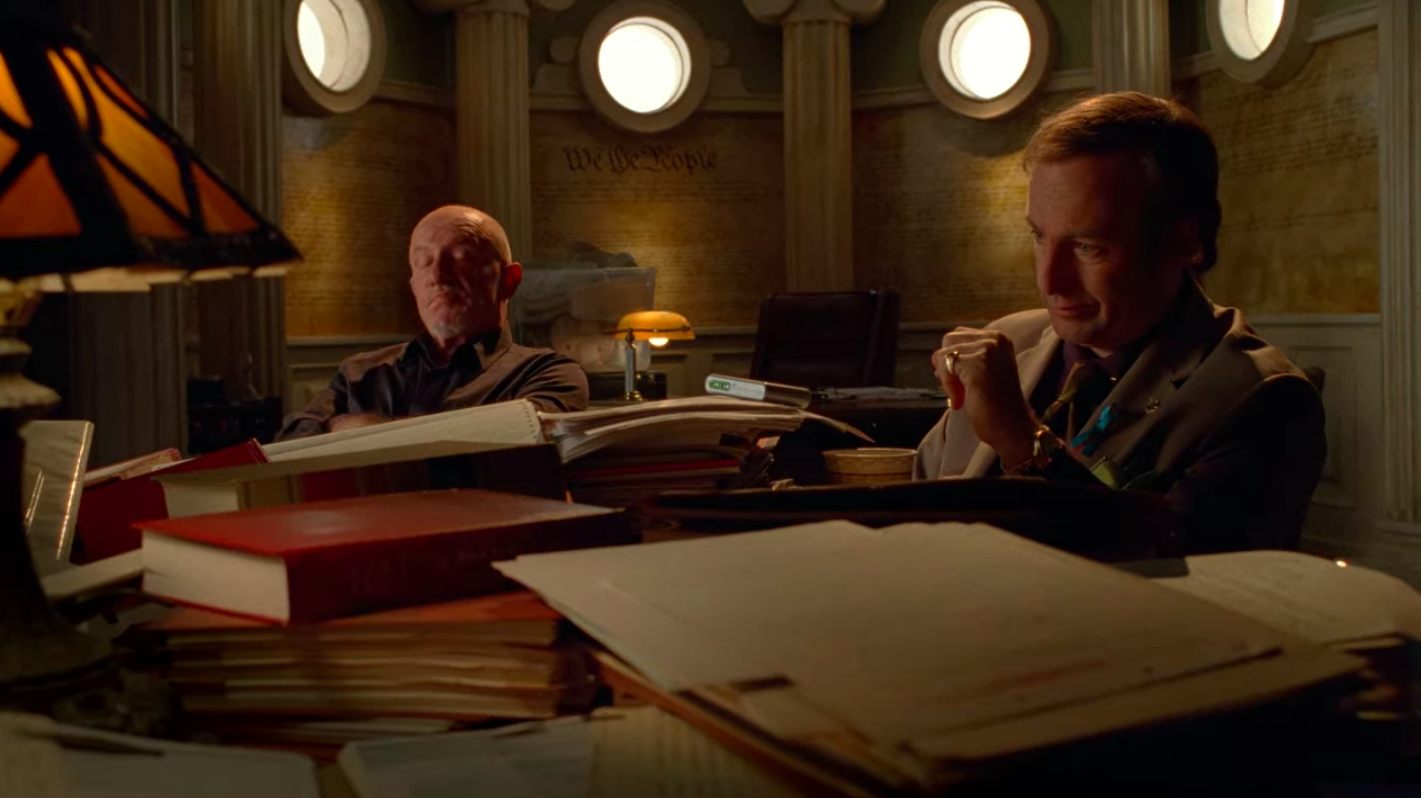
When Mike Ehrmantraut bursts into Saul’s office without knocking, Saul immediately pushes his client, an old lady, out. Throughout the scene in which they listen to a recording of Skylar White arguing with Walter White, it’s clear that Mike holds the power over Saul, which indicates that there is a rich history behind their partnership. It’s also clear that Mike has some disdain for the guy beyond his annoying, desperate persona: so much so that Saul reels it in quite a bit.
Episode 9, “Kafkaesque”
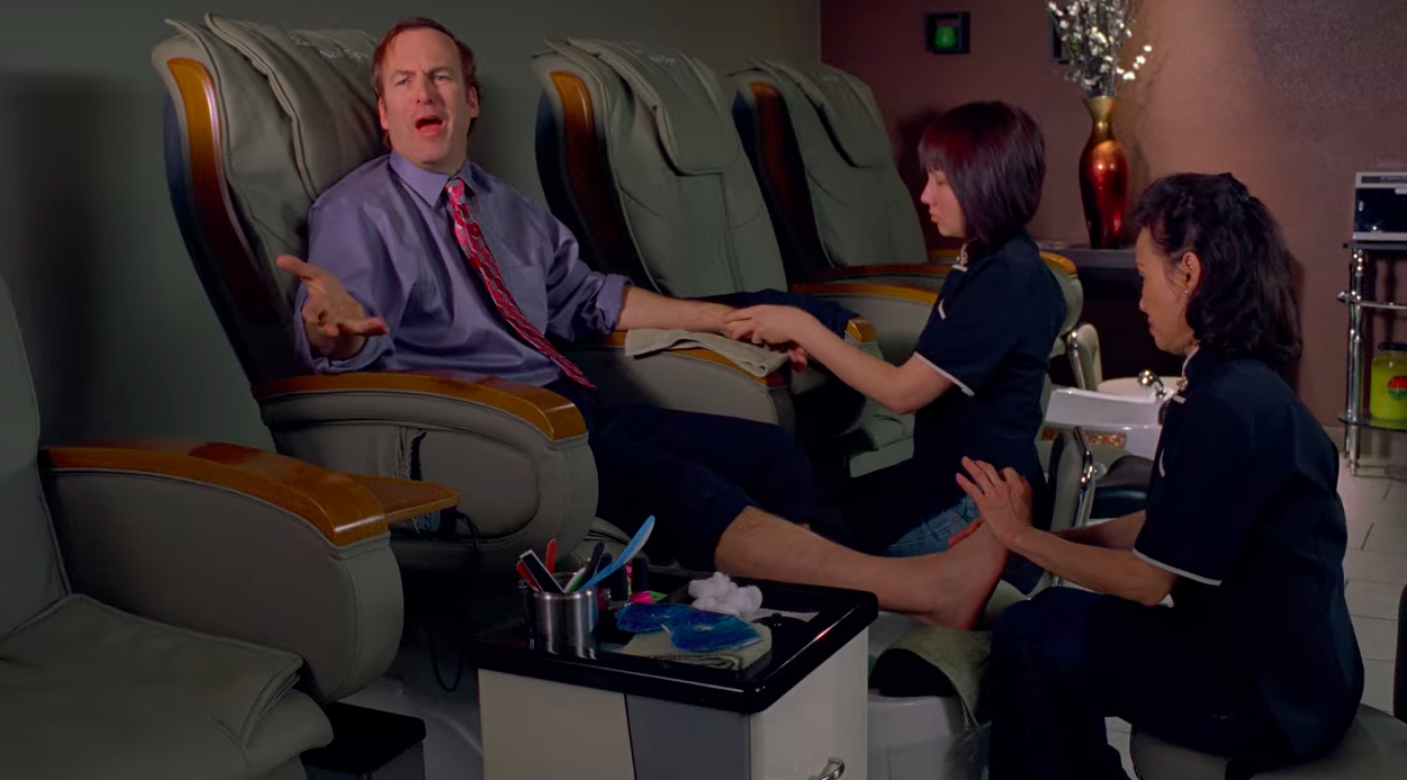
Saul has a brilliant idea for his client Jesse Pinkman: he can launder his money at a nail salon. Early on in Better Call Saul, Jimmy McGill’s office was in the back room closet of a nail salon. The man clearly has a soft spot for nail salons, considering their role in his law career. While Saul is advising his client to commit a crime, he’s actually giving him good advice on how to manage his criminally acquired finances. The fact that Saul proudly suggests that Jesse launder his money at a nail salon suggests that there is a little piece of Jimmy buried deep down underneath the Saul facade. Part of him is holding onto the past, and part of him still has the potential that Kim always saw in him when others rejected him.
Episode 11, “Abiquiu”
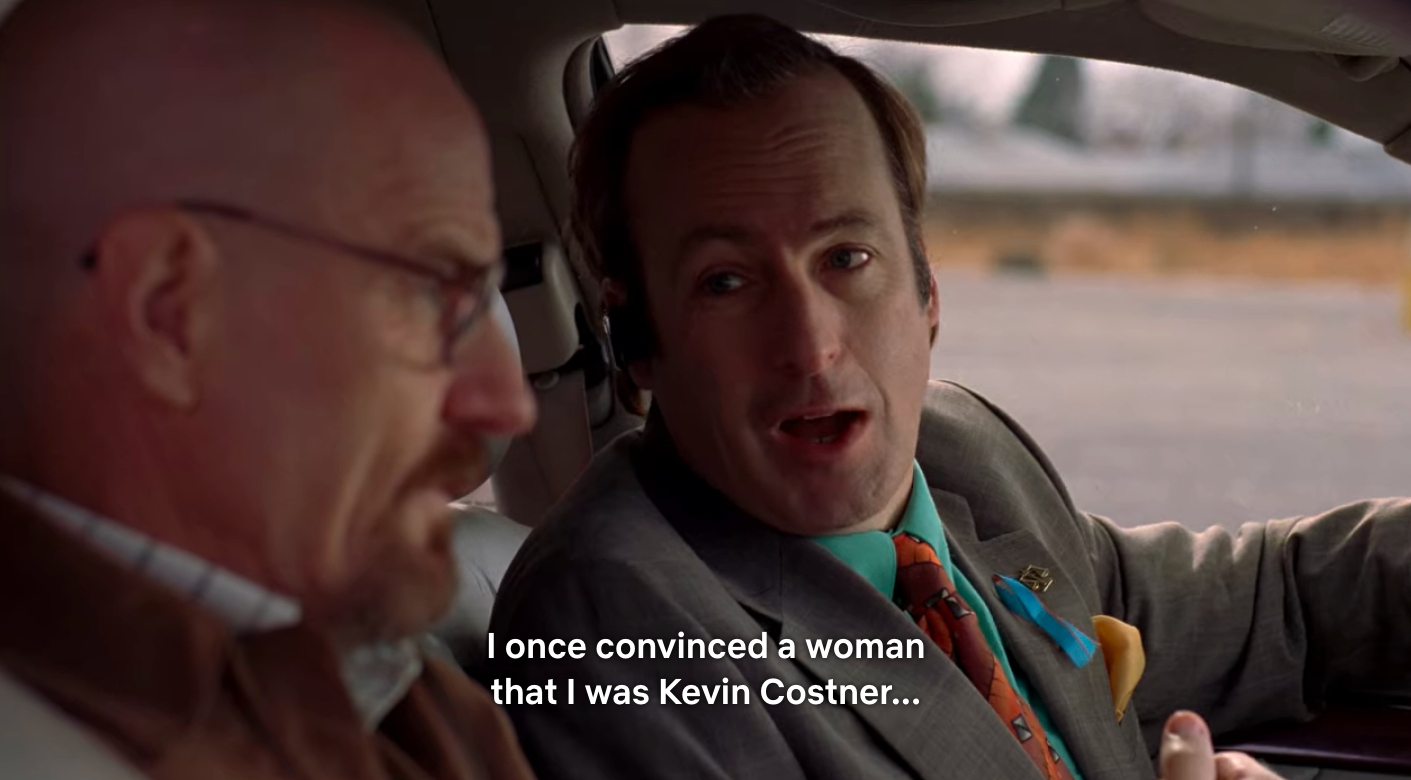
“If you’re committed enough, you can make any story work. I once convinced a woman that I was Kevin Costner, and it worked because I believed it, all right? It has nothing to do with the story,” Saul tells Walter White. This scene has more layers than Jennifer Aniston’s hair circa 1998: Jimmy McGill is so committed to the persona of Saul Goodman that like the rest of the world, he’s convinced the latter is who he really is. Saul Goodman is Jimmy McGill’s Kevin Costner. This also ties into Jimmy trying to tell himself and Kim that if they forget Lalo shooting Howard Hamlin right in front of them, one day it will be like it never happened.
SEASON FOUR
Episode 4, “Bullet Points”
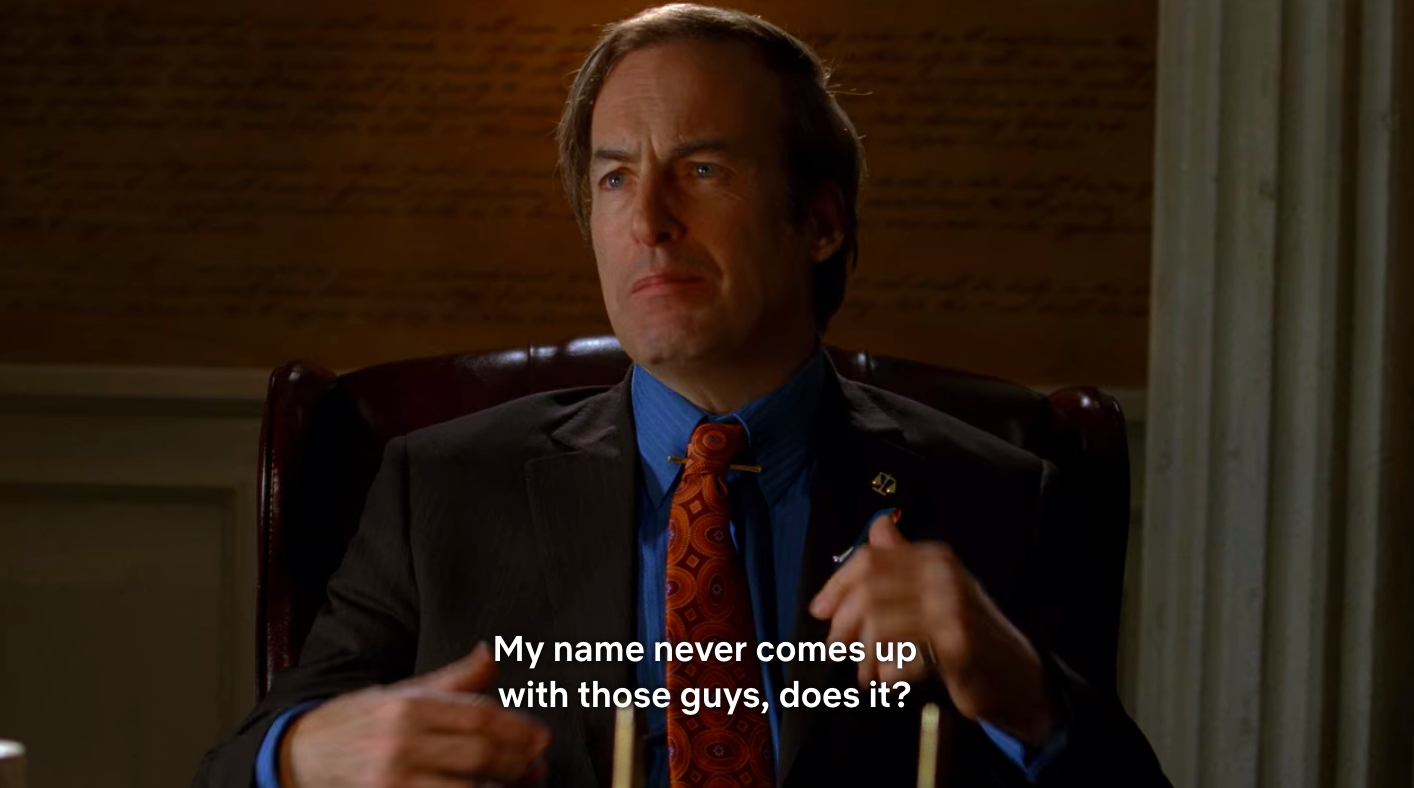
“My name never comes up with those guys, does it?” Saul asks softly in a meeting with Walter in his office. Saul — who lets an ever so slight amount of Jimmy out here — is terrified of the consequences of going up against Gustavo Fring’s entire operation and wants to make sure he’s safe. Knowing what he knows about Lalo and the cartel, he’s right to fear for his life. In his mind, anyone could walk into his home unannounced and shoot someone (even himself) in the head. He’s literally seen it with his own eyes.
Episode 7, “Problem Dog”
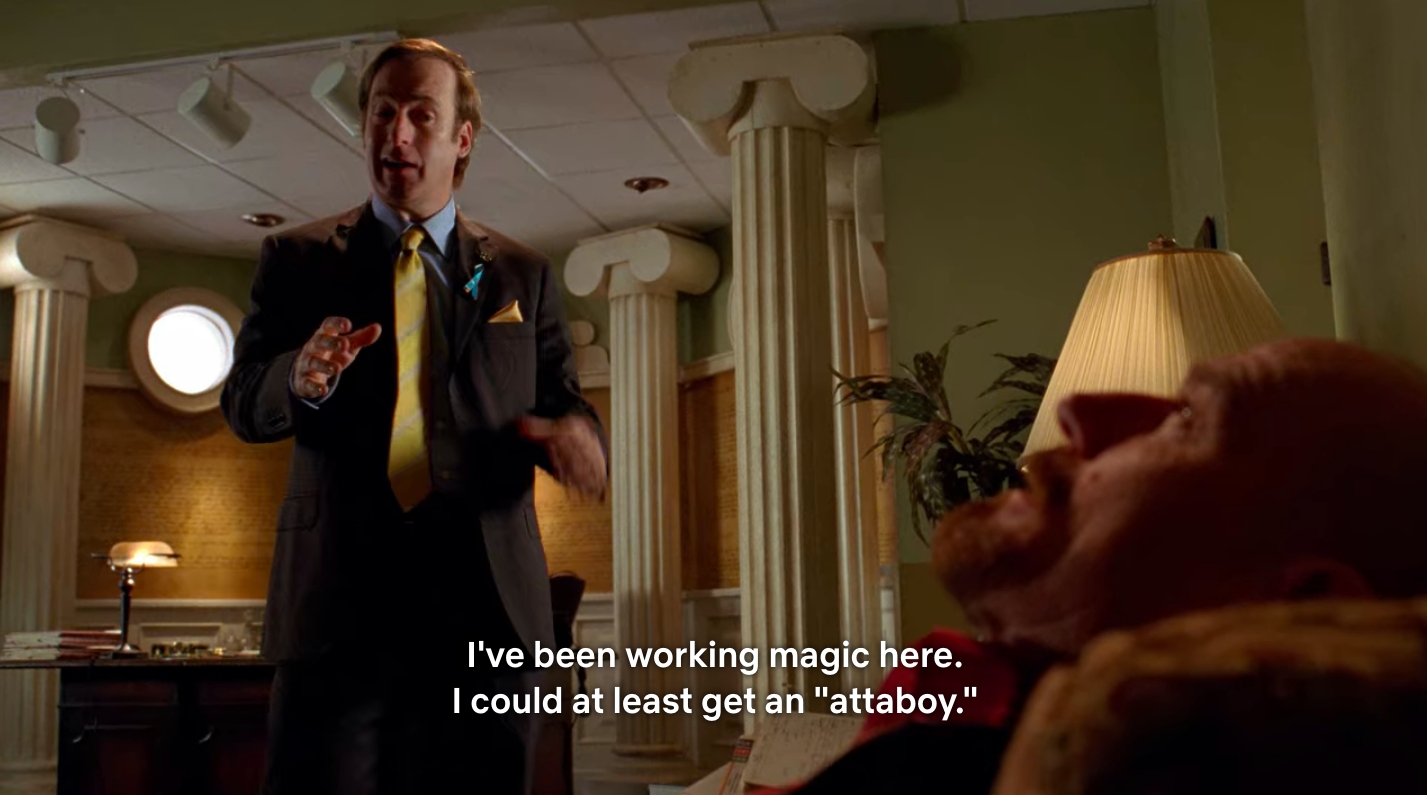
After Saul seamlessly settles a legal problem for Walt, he is upset by Walt’s indifference, even though Saul does not particularly like his most valuable (and most dangerous) client. Jimmy McGill spent the majority of his life in his brother Chuck’s shadow. While Jimmy rarely ever did the right thing, it always went unappreciated the few times he did, which is (amongst many reasons) why Saul Goodman was born. Saul’s desperation shows here: he’s never expected praise from Walt before, but he did once Walt seemed unimpressed with his work, mimicking the dynamic between his older brother.
SEASON FIVE
Episode 1, Live Free or Die
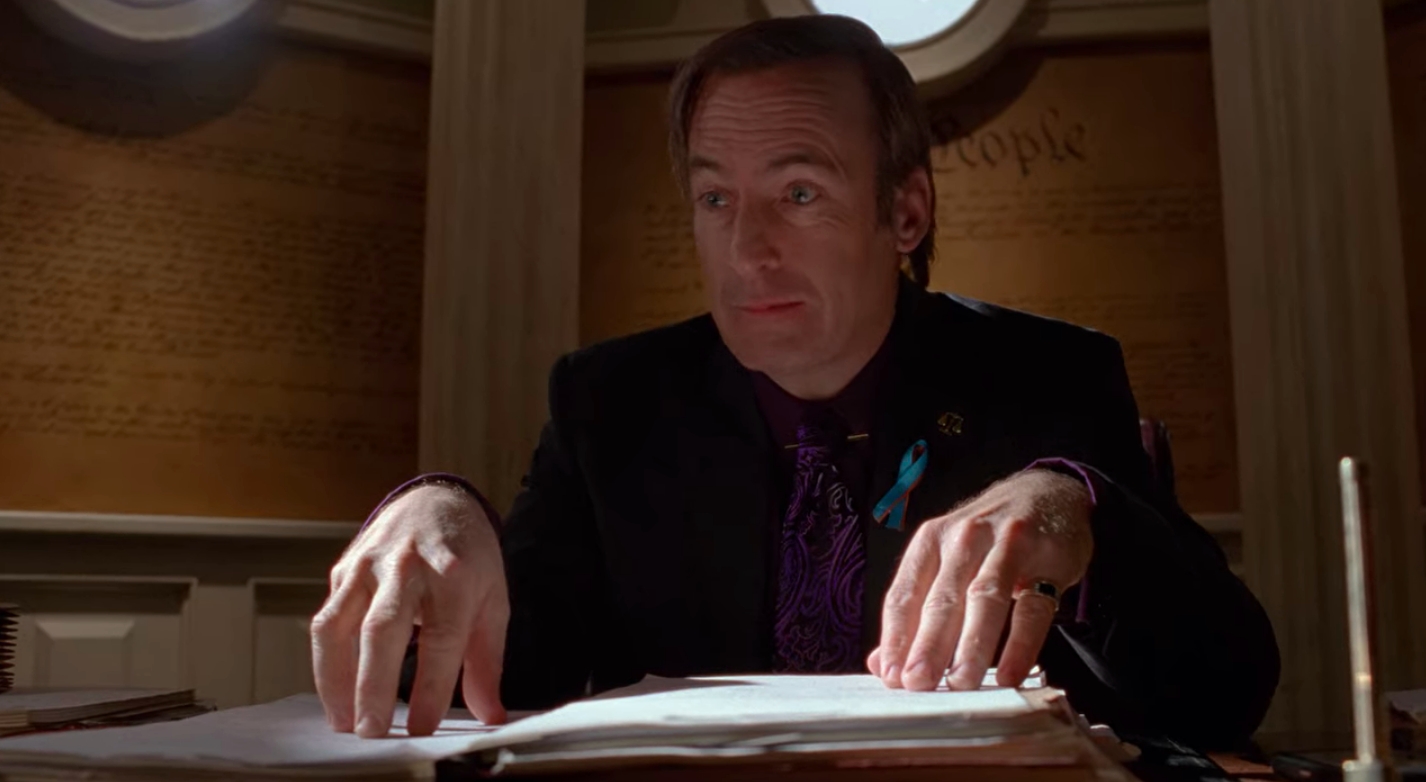
By the fifth season of Breaking Bad, Better Call Saul is in development, which means that Saul Goodman’s backstory has even more layers and more specificity than in earlier seasons. In a scene in his office with Walter White in the season premiere, Saul defends Skylar (and himself) for their decision to give Walt’s meth money to Ted Beneke to pay off the IRS. Saul tells Walt that Skylar was trying to protect him. He sighs deeply and stares blankly, likely remembering what it was like to have a partner who would do anything for him —even illegal stuff.
In the same scene, Saul says he tries his best ethically to represent the Whites. Walt berates Saul for daring to apply the word to himself, mirroring the way Chuck spoke to Jimmy. Unlike he did with his brother, Saul defends himself and tries to fire Walt. But Walt intimidates Saul, reflecting back to his powerless dynamic with Lalo Salamanca. Saul has a big personality, but not an overpowering one.
Episode 10, “Buried”
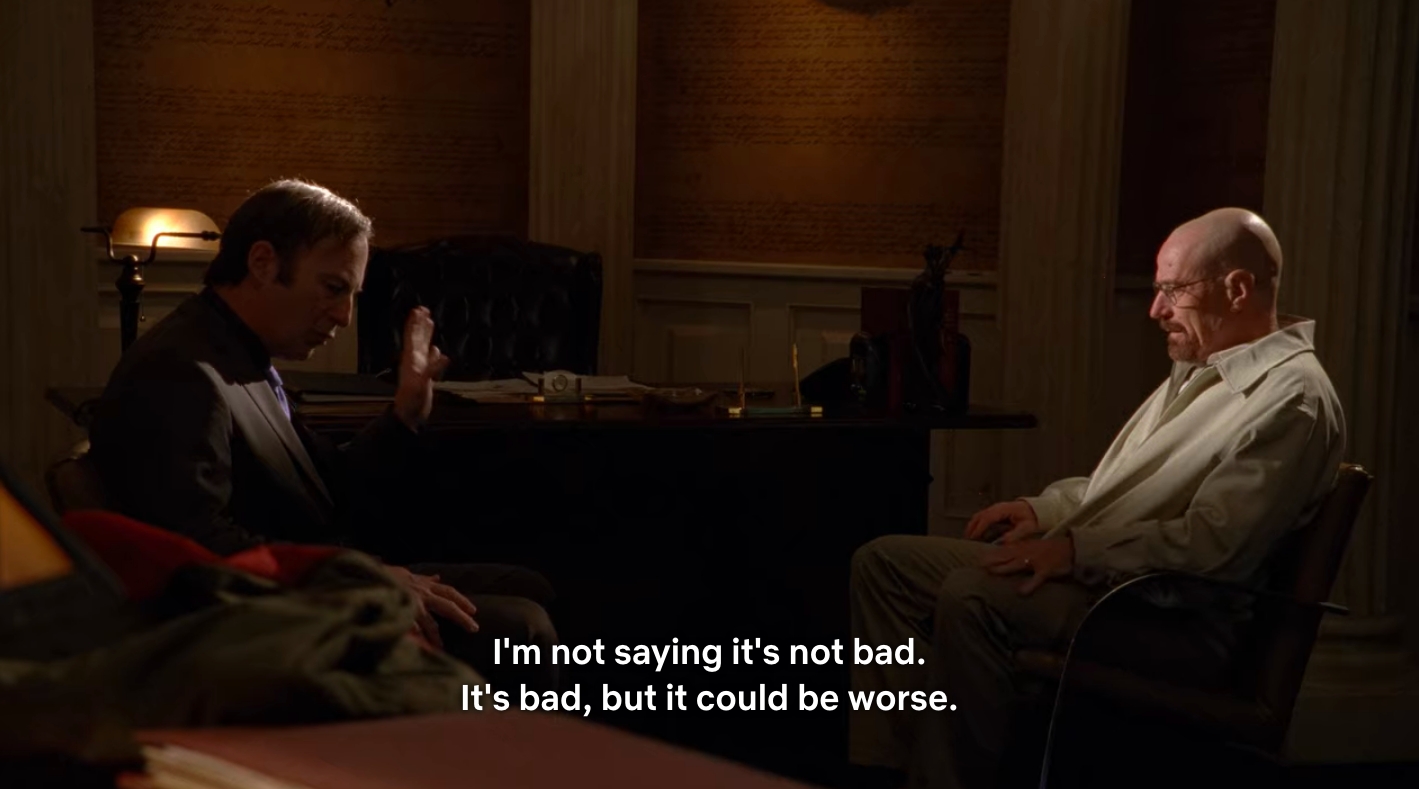
Saul tries to calm Walter down by telling him, “it’s bad, but it could be worse.” Considering what Jimmy McGill has experienced (he witnessed Lalo Salamanca murder his former colleague/nemesis in his own apartment which subsequently unraveled his marriage and life), things actually could be much worse. Odenkirk says the line with a kind of pain and fear on his face that we’ve never seen in Saul before, implying that he truly means what he said. Walt is ignorant of that, though, and upon first viewing, the audience was, too.
Episode 12, “Rabid Dog”
“You’re full of colorful metaphors, aren’t you, Saul?” Walt says before threatening him. Walt has become a culmination of Jimmy McGill’s nightmares: Lalo Salamanca and Chuck. A terrifying, unpredictable figure who knows how to hurt him most.
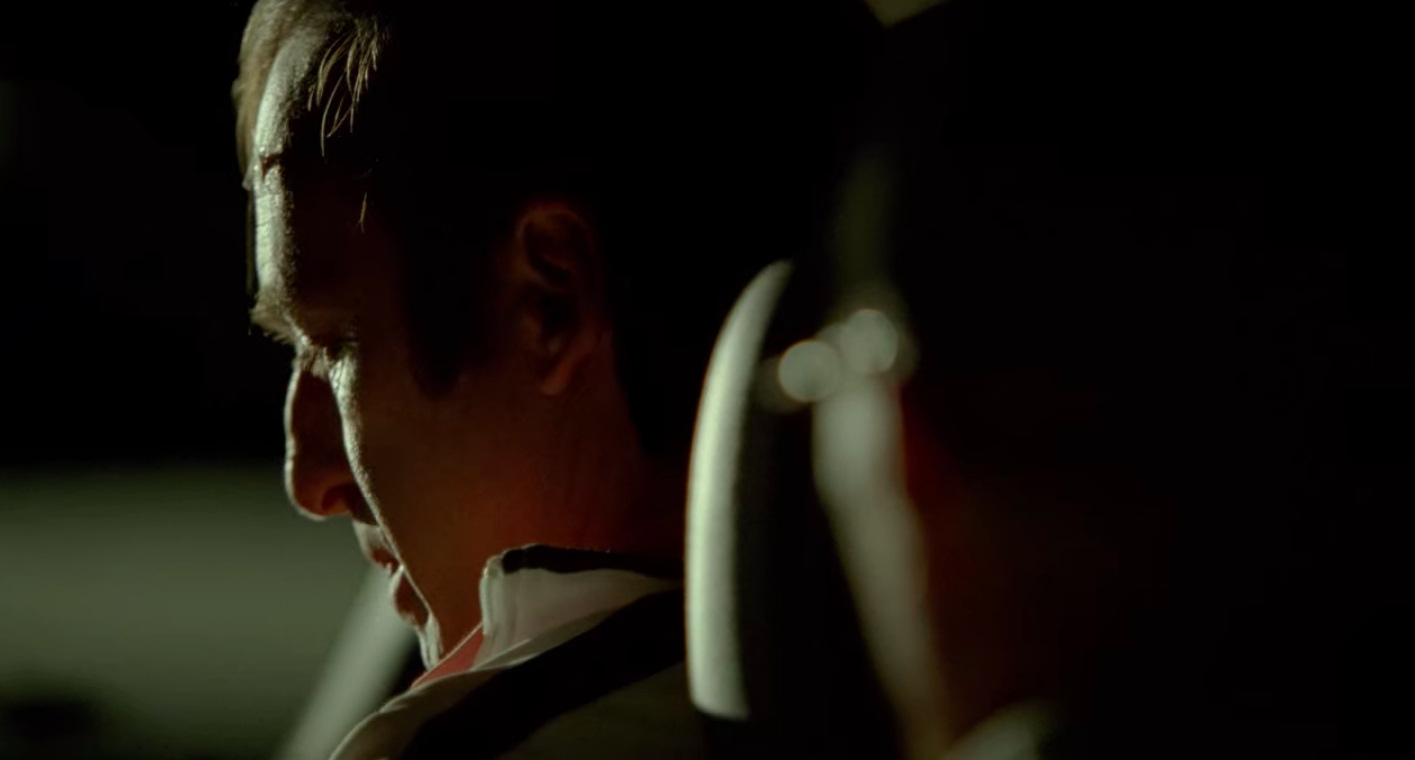
Episode 13, “To’hajileee”
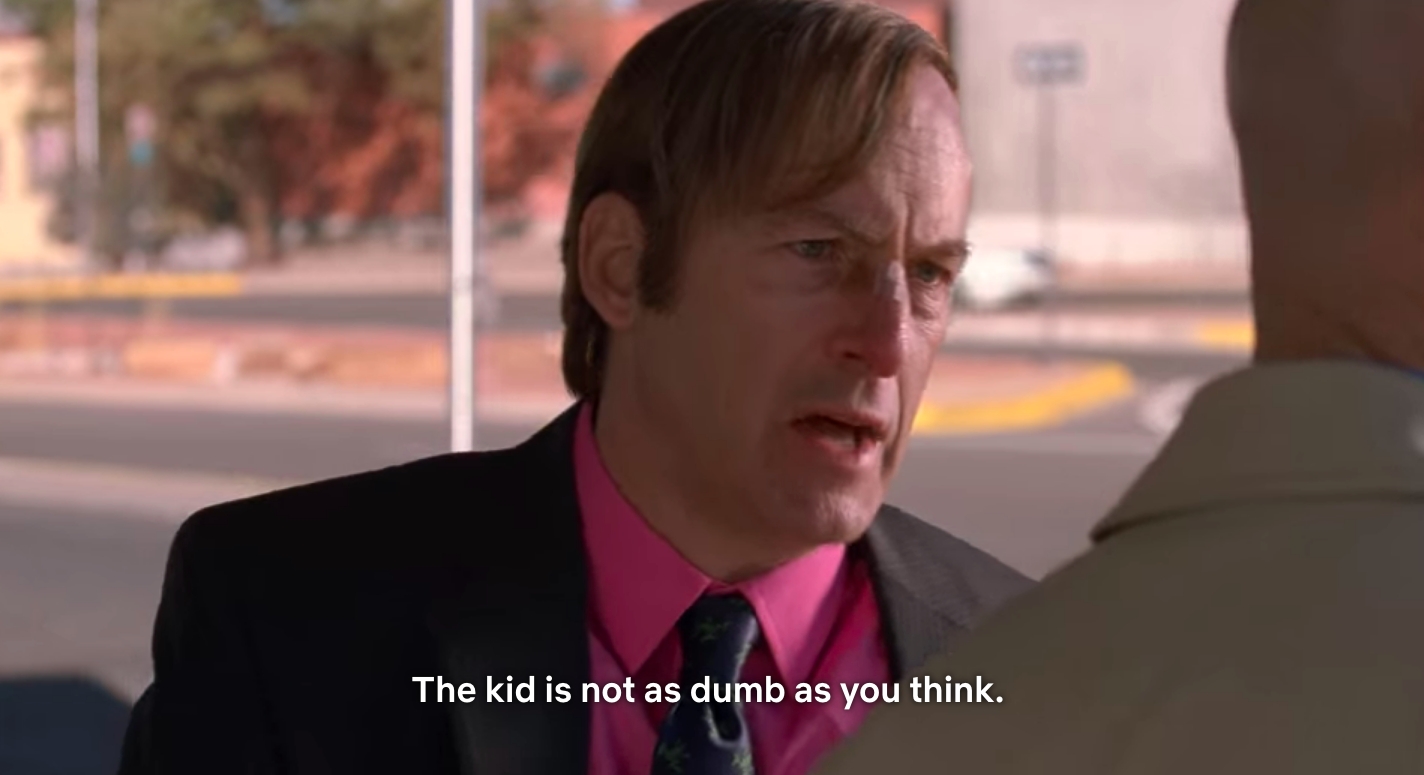
Saul tells Walt, “the kid is not as dumb as you think” about Jesse. This is the Jimmy McGill part of Saul crawling out for a little moment. He sees Jesse’s value while Walter cannot see it at all, probably because he sees a little bit of his (former) self in him. Like Jimmy, Jesse knows how to navigate the crime world of ABQ. Saul also sees a little bit of himself in Jesse: underdog doing what he can to survive. In this episode, we also see Saul freak out about Huell’s whereabouts, suggesting a deeper relationship that we eventually see in Better Call Saul.
Episode 15, “Granite State”
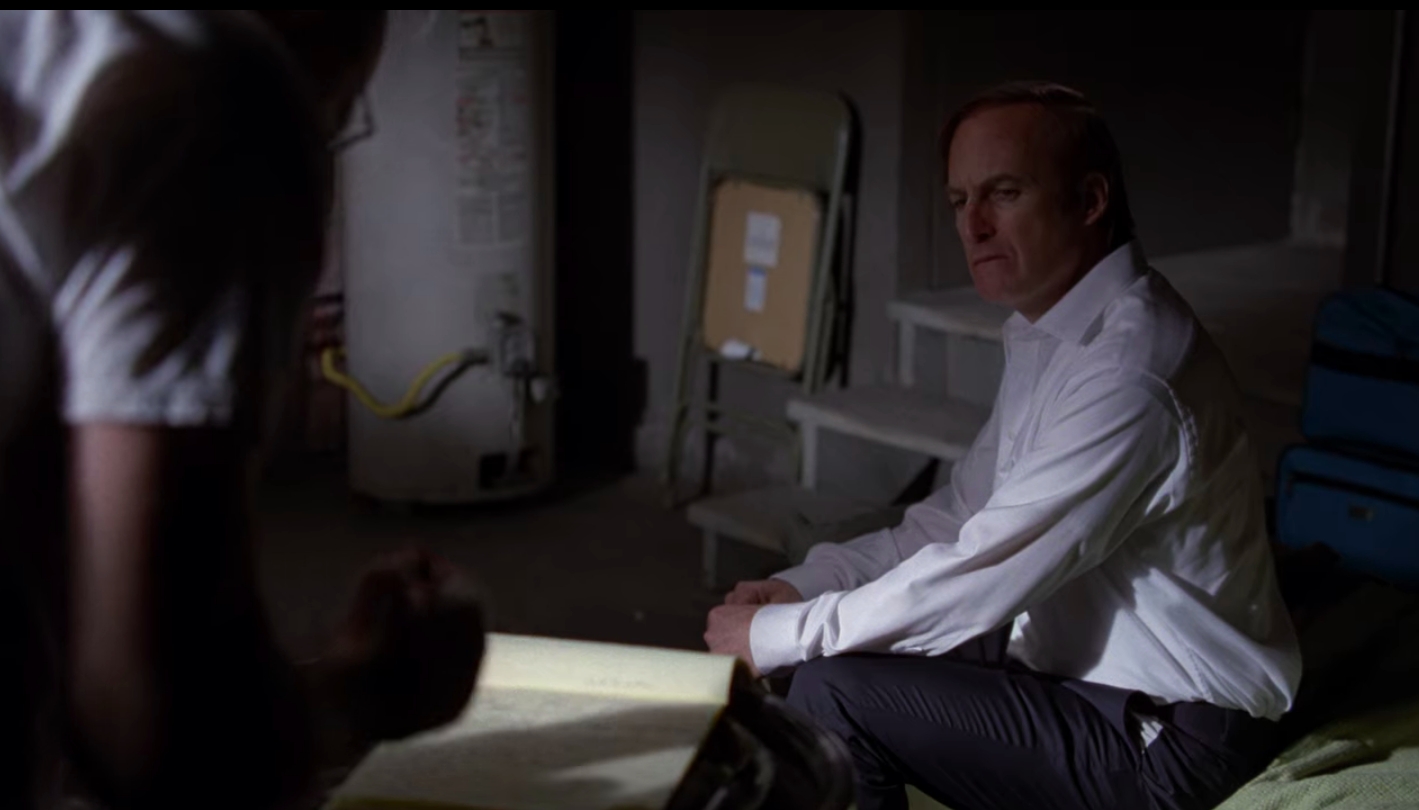
Saul makes a visit to the disappearer and waits for his uncertain future alongside Walter White. Saul Goodman is completely gone: this is Jimmy McGill. Saul’s colorful clothes are gone, along with his colorful personality and confidence. Stripped of Saul’s signature wardrobe and personality, he’s speaking softer and more straightforward, no metaphors. He advises Walt to turn himself in to protect his wife and his children instead of coming up with a way to get out of it. It’s the kind of lawyering Kim would do, if only it weren’t too late.

